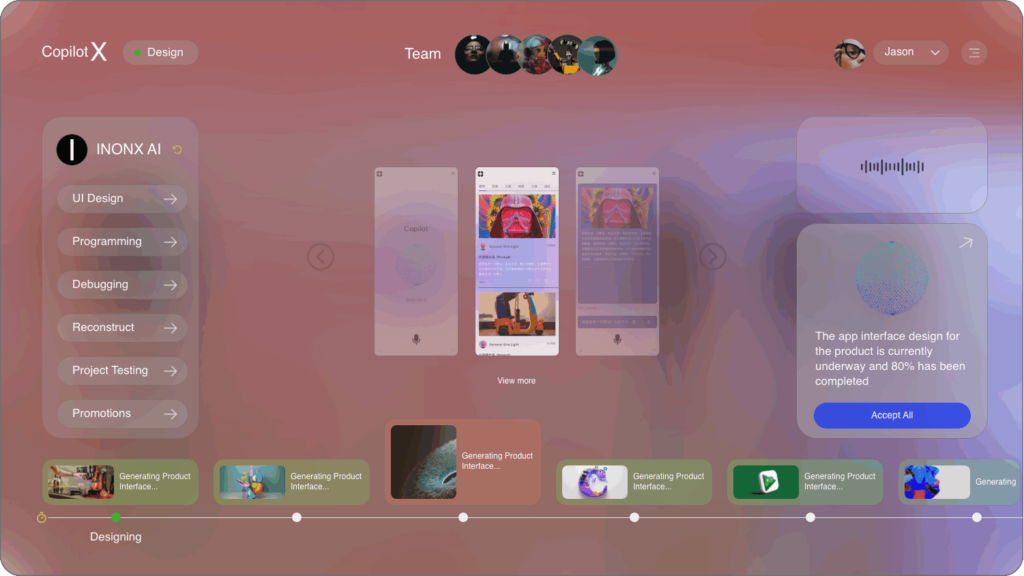The landscape of sales is evolving rapidly, driven primarily by technological advancements and the increased need for efficiency. One of the most significant innovations steering this transformation is **AI for Sales Automation**. As companies strive for enhanced productivity and improved customer experiences, AI tools are stepping in to revolutionize traditional sales processes.
Sales automation involves using technology to streamline and simplify sales tasks, allowing sales professionals to focus on relationship-building and strategy development rather than mundane administrative duties. With AI integration, sales automation tools can analyze vast sets of data quickly, generate insights, and even predict future customer behaviors. This article delves into the latest trends, updates, and applications of sales automation, highlighting cognitive automation, predictive models, and real-world use cases in the industry.
.
**The Rise of Cognitive Automation in Sales**
Cognitive automation refers to the use of AI systems that mimic human thought processes to automate tasks that require decision-making. In the realm of sales, cognitive automation allows machines to interpret data, learn from experiences, and make informed decisions.
For instance, cognitive automation tools can analyze customer interactions, feedback, and buying patterns to develop a comprehensive understanding of customer preferences. This intelligence helps sales teams tailor their pitches, focusing on delivering personalized experiences that resonate with potential buyers. By leveraging cognitive automation, companies can improve lead qualification, reduce the sales cycle, and ultimately drive higher conversion rates.
Moreover, cognitive automation can assist in managing large volumes of sales data. Tools equipped with natural language processing (NLP) and machine learning capabilities can sift through emails, chats, and customer inquiries to extract actionable insights. This ensures that sales teams have the most relevant information at their fingertips, enabling them to act quickly and efficiently.
.
**Harnessing AI Predictive Models for Business Success**
AI predictive models are a game-changer for businesses aiming to stay ahead of their competitors. These models utilize historical data and machine learning algorithms to forecast future outcomes, helping organizations make informed decisions. In sales, predictive analytics can identify prospects that are most likely to convert and prioritize them for outreach.
By integrating AI predictive models into their sales strategies, companies can gain valuable insights, such as customer lifetime value (CLV), churn risks, and purchasing trends. Such information allows sales teams to allocate resources more effectively, fine-tune their marketing strategies, and engage customers at the right moments throughout the buying journey.
For example, a leading SaaS company implemented AI predictive models to analyze customer behavior on their website. By tracking how users navigate through their platform, the AI identified patterns that indicated readiness to buy. As a result, the sales team could approach prospects with timely, personalized offers tailored to their specific needs—leading to increased conversions and customer satisfaction.
.
**Key Trends in Sales Automation**
The integration of AI into sales automation is marked by several key trends:
1. **Personalization and Customer Experience:** As customers become more discerning, the demand for personalization is at an all-time high. AI tools can assess data from multiple sources, allowing sales teams to deliver customized solutions based on individual preferences and behavior. This shift towards personalization can significantly enhance customer loyalty.
2. **Increased Focus on Data-Driven Decision Making:** Sales automation tools are becoming more sophisticated and data-centric. Organizations are leveraging data analytics to drive their sales strategies, leading to improved targeting and engagement efforts. The use of data allows sales teams to make informed decisions rather than relying solely on intuition.
3. **Integrating AI with CRM Systems:** As companies increasingly adopt Customer Relationship Management (CRM) systems, the integration of AI functionalities has become more prevalent. This integration enables sales teams to harness the full potential of their data, automating repetitive tasks and providing insights to drive strategy.
4. **AI-Powered Chatbots and Virtual Assistants:** Chatbots are revolutionizing customer interactions by providing real-time support and guidance throughout the buying process. AI-powered virtual assistants can manage multiple inquiries simultaneously, ensuring prompt responses while filtering and qualifying leads for sales teams to pursue.
.
**Challenges and Solutions in AI-Driven Sales Automation**
Despite the major benefits of AI in sales automation, organizations must also navigate several challenges. These include data privacy concerns, the need for a cultural shift within teams, and the necessity of ensuring alignment between sales and marketing efforts.
**Solution-Oriented Approaches:**
– **Data Privacy Regulations:** Companies must ensure their use of AI aligns with regulations like GDPR and CCPA. This requires robust data management practices and transparent communication with customers about how their data is being used.
– **Cultural Shift:** Introducing AI technologies within an organization often requires a shift in mindset. Providing training and reassurance to sales teams can help ease resistance towards these changes, paving the way for smoother integration.
– **Cross-Functional Alignment:** To guarantee the success of AI tools, it is critical to align sales and marketing. Collaborative strategies will help organizations maximize the potential of AI-driven insights.
.
**Real-World Applications of AI for Sales Automation**
Several companies have successfully implemented AI for sales automation, demonstrating its transformative impacts on their operations:
1. **Salesforce Einstein:** A leading CRM provider, Salesforce, has integrated AI into its platform through Einstein. This offers users predictive lead scoring, automated data entry, and tailored insights based on customer interactions. By utilizing Einstein, businesses can close deals more efficiently and improve overall customer interactions.
2. **HubSpot:** HubSpot has implemented AI to optimize its CRM services, allowing sales teams to prioritize leads effectively. Through analysis of behavioral data, the AI helps sales professionals identify which prospects are most likely to convert based on their activity—saving time and boosting sales efficiency.
3. **Zendesk:** Zendesk uses AI to analyze customer support tickets, providing insights that help sales teams understand customer pain points. By interpreting these emotions and feedback, companies can address issues proactively, turning challenges into sales opportunities.
.
**The Future of Sales Automation: Where AI Leads Us**
As technology continues to advance, the role of AI in sales automation will only expand. There is an increasing expectation for sales processes to be data-driven, personalized, and customer-centric. AI is not just a tool; it represents a fundamental shift in how businesses approach sales.
Organizations that invest in AI for sales automation can anticipate not only improved efficiencies but also a deeper understanding of their customers. As machine learning models become more sophisticated, the predictive capabilities of these tools will enhance the ability of sales teams to anticipate customer needs and streamline processes accordingly.
By embracing AI for sales automation—leveraging cognitive automation and predictive models—organizations stand to thrive in an ever-competitive market, driving revenue growth and improving customer satisfaction in the process.
In conclusion, the future is bright for sales teams that integrate AI into their strategies, leading to better decision-making, improved customer experiences, and streamlined processes. As businesses continue to adopt AI, they will harness its capabilities to unlock unprecedented levels of success in the sales domain.
Sources:
– Salesforce Einstein
– HubSpot CRM
– Zendesk Reports on Customer Support AI
– McKinsey & Company Insights on AI in Sales Automation

























